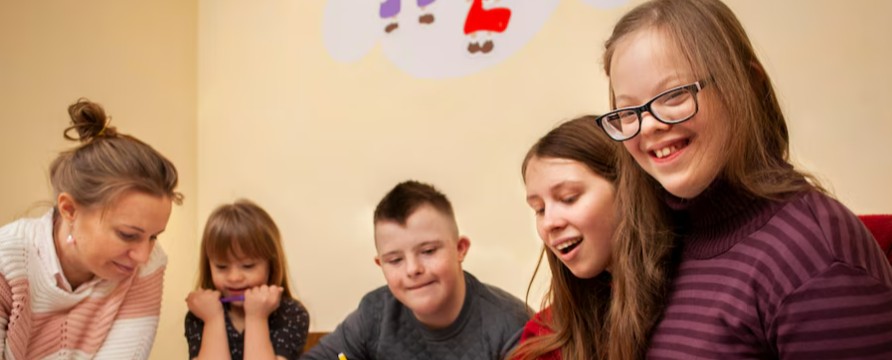
Celebrating World Down Syndrome Day

Celebrating World Down Syndrome Day
Every year on March 21st, World Down Syndrome Day is observed to raise awareness about Down syndrome and celebrate the lives and achievements of individuals with this condition. Down syndrome, also known as Trisomy 21, is a genetic disorder caused by the presence of an extra copy of chromosome 21. This additional genetic material affects the development of the individual, leading to various physical and cognitive differences.
Features
Individuals with Down syndrome often have distinctive facial features, such as almond-shaped eyes, a flat nasal bridge, and a protruding tongue. They may also experience developmental delays, intellectual disabilities, and certain medical conditions, such as congenital heart defects, hearing loss, and thyroid disorders. However, it's important to recognize that each person with Down syndrome is unique and may experience these characteristics to varying degrees.
Myths & Facts
Many misconceptions surround Down syndrome. Let's explore some common myths and celebrate the realities of individuals with Down syndrome.
Myth: All people with Down syndrome have severe intellectual disabilities.
Reality: Most individuals have mild to moderate intellectual disabilities. This doesn't define their potential. They have unique strengths and talents. Be patient and allow them extra time to process information and express themselves.
Myth: People with Down syndrome can't be active in their communities.
Reality: They actively participate in education, social activities, and hobbies. They're included in schools and enjoy sports, music, art, and more. They are valued members of families and communities, making significant contributions.
Myth: People with Down syndrome are always happy.
Reality: They experience a full range of emotions, just like everyone else. They respond positively to kindness and can feel hurt or upset by negativity.
Myth: Adults with Down syndrome are like children.
Reality: They are adults and should be treated as such. They enjoy activities and friendships with other adults, with similar needs and desires.
Myth: Adults with Down syndrome can't have fulfilling relationships or get married.
Reality: They can form strong friendships and meaningful relationships. Some choose to date, have committed relationships, and even marry.
Myth: Adults with Down syndrome can't work.
Reality: They are employed in various fields - banking, corporations, hospitality, healthcare, and more. They work in music, entertainment, clerical positions, childcare, sports, and even the computer industry. Like everyone else, they want jobs where their contributions are valued.
Myth: People with Down syndrome don't live long lives.
Reality: Medical advancements have significantly increased their average life expectancy to 58 years old, with many living well past 60.
Understanding Down Syndrome
Despite the challenges they may face, individuals with Down syndrome lead fulfilling lives and make valuable contributions to their families, communities, and society as a whole. With access to early intervention programs, educational opportunities, and supportive environments, people with Down syndrome can achieve remarkable accomplishments and reach their full potential.
In recent years, there has been a growing emphasis on inclusion and acceptance of individuals with Down syndrome in all aspects of life. Through advocacy efforts and awareness campaigns, misconceptions and stereotypes about this condition are being challenged, promoting a more inclusive and understanding society.
As we celebrate World Down Syndrome Day, let us reaffirm our commitment to promoting inclusion, advocating for equal opportunities, and embracing the diversity of the human experience. By fostering a society that values and respects individuals with Down syndrome, we can create a world where everyone has the opportunity to thrive and contribute their talents to the fullest extent. Together, let us build a more inclusive and compassionate world for individuals with Down syndrome and all people with disabilities.
Articles
Build your awareness and get inspired with our researched articles on how you can strengthen your well-being
Popular Topics
An OTP has been sent to the email address
provided.
Please check your Inbox and Spam folders.

What Would You Like to Speak with a Specialist About?
Mental Fitness Journey starts Now!
Chearful Connects you with Top-tier Qualified Wellness specialists for the Price of a cup of Coffee!

Next Steps
- A Client Team member will reach out to you to schedule a session with the most suitable specialist.
- You will receive an email with a 10% Discount Code* for your 1st session.
- We invite you to Explore the Platform & Sign Up today! *Upto a maximum of $10 discount on a session purchased




 1235 Read
1235 Read







